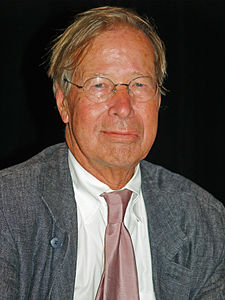Course:Law3020/2014WT1/Group L/System Of Rights
Ronald Dworkin: Law as a System of Rights
In his writings, Dworkin is responding to and rejecting the positivist view on rules, their validity and judicial decision-making. He specifically names Hart as the main target in his theory.[1] Positivists hold that when difficult cases arise that do not follow the current state of the rules, then the judge is exercising his discretion in coming to a judgement.[2]
Dworkin asserts that it is not discretion in the strong sense that is being exercise; he states that the judge is actually applying the underlying principles of our legal system to arrive at his outcome. He is merely uncovering and using them, as they run through the precedent
that allowed the law to develop to this point. In response to the question of which principles to apply at what point, Dworkin states that differing principles have differing weights, and what appears to be discretion to the positivist, is actually the weighting of the importance of these principles in each case.
Rules v Principles
The difference between a rule and principle is that a rule operates in an all-or-nothing fashion. If the case falls within these rules then the rule applies and if the case falls outside the rules then such a rule does not apply; Dworkin uses the example of 3 strikes signalling that the batter is out in baseball as a rule.[3] The application of principles can result in the creation of rules.
Role of Judges
The role of judges is to analyze the specific facts of a case and try to remedy it with a defined rule. Judges are bound by rules and can't disregard principles in their decision making - they must pull from the principles and use legal reasoning to make difficult decisions. In the analysis of hard cases, decisions based on principles will affect future decisions. These future decisions have to be coherent and appropriate reflect and expand on the preceding decisions. This is what constrains judicial decision making and makes it clear that judicial discretion is not unlimited, but must accord both with precedent and with principles.[4]
Application to Geffen v Goodman Estate
In the case of Geffen v Goodman Estates, the judges make multiple references to principles to guide the outcome. Principles could be considered analogous to morals in a natural law analysis, they compose the substance of the law and act as a guiding principal in judicial decision making.
In the judgement, the judge states that the answer to this case will be resolved by referring back to first principles and looking to the purpose the doctrine of undue influence was attempting to achieve.[5] Such a statement is directly analogous to what Dworkin postulates judges do to arrive at their decisions. The judge found that the purpose to be served was protecting people from abuses of power, confidence or trust.[6] The judge also achieved the goal of continuity by not wanting to constrain the doctrine and allow it to apply to a wide variety of transactions. The principle of freedom of contract and inviolability of bargains was also discussed as an important consideration and a tenet that needs to be protected.[7] The use of this principle shed light on the final articulation of the test required for a presumption of undue influence to be imposed; the division between commercial transactions and gifts or transactions without consideration allows for the maintenance of this contractual principle while still giving deference to the principle of protection from abuses in relationships of influence. That a commercial transaction requires the demonstration of manifest disadvantage, while a non-commercial transaction only need show a relationship of influence, speaks to the weighing and balancing of competing principles.
